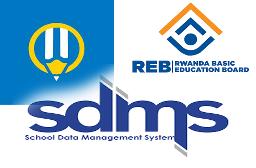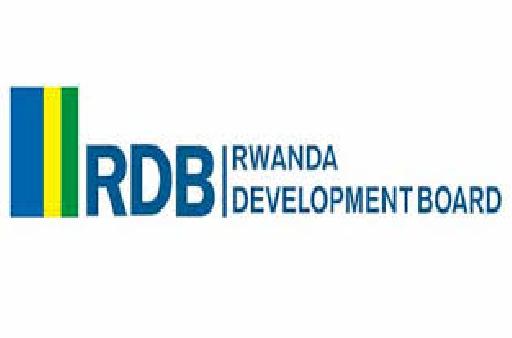
NjordFrey Overview
NjordFrey provides sustainable high-yield aquaponic farming solutions to smallholder farmers to significantly increase their income.
Project Background
An international university, in partnership with NjordFrey, is undertaking a research project, aimed at exploring the social and environmental impacts of cookstove initiatives within Rwandan communities. This study aims to understand the role of community forests and household energy practices in Rwanda, particularly how households source energy/fuel, manage community resources, and respond to external cookstove interventions.
Rwanda's reliance on wood and biomass as primary energy sources has heightened concerns about deforestation and environmental degradation. In response, organisations have introduced improved cookstoves designed to reduce fuelwood usage, promising benefits for both household energy efficiency and forest conservation. However, the effectiveness of these programmes is not fully documented, and adoption rates remain variable.
As a result, the team are interested in the qualitative dynamics of how Rwandan households make decisions about energy sourcing and forest resource use. Key areas of focus include the rules governing community forest access, the availability and types of energy sources for cooking, and strategies households adopt during times of fuel scarcity. The team also aims to evaluate the influence of improved cookstoves on fuel sourcing, especially in rural and peri-urban areas outside Kigali, and explore potential regional variations in practices and perceptions.
This study will involve time in the field to visit villages in different districts around Rwanda to gather diverse insights on community forest usage, decision-making around energy, and the perceived value of cookstove initiatives independent of input from cookstove providers. Researchers aim to ensure the survey is culturally appropriate and sensitive to participants’ comfort, recognising that questions related to energy and forest resources may carry social sensitivities.
Data gathered from this research will complement existing quantitative studies, contributing to the final research output and offering a comprehensive view of the role of community forests in Rwandan energy practices. By addressing gaps in current literature, the project aims to inform policy and programme development related to cookstove use, community forest management, and sustainable energy practices in Rwanda.
Following this defined research project, there will be the opportunity for successful candidates to be considered and recommended for other projects within the company.
Roles and Responsibilities for Enumerators
Language Proficiency and Translation
- Enumerator must be fluent in both English and Kinyarwanda to conduct and support interviews, translate responses accurately, and ensure clear communication with respondents and English-speaking researchers.
- Capable of interpreting complex concepts from the protocol into simple terms in Kinyarwanda for better understanding by respondents.
Scheduling and Coordination
- Supporting the planning of appointments with interviewees, including confirming dates and times for focus group discussions.
- Conduct follow-ups and send reminders to participants about the time and location of their focus group interviews, ensuring high attendance.
Focus Group Moderation
- Support and moderate focus group discussions with a neutral and professional demeanour, encouraging full participation from all respondents.
- Skilled in managing group dynamics and guiding discussions, while keeping the focus on key study topics related to cookstoves, community forests, and fuel usage.
Data Collection and Note-Taking
- Conduct qualitative interviews following the structured protocol and take detailed notes on key responses and observations. All notes need to be written in English, even if the response is given in Kinyarwanda.
- Accurately document participant answers, including verbal and non-verbal cues, to ensure rich, contextual qualitative data for later analysis.
Cultural Sensitivity and Adaptability
- Show cultural sensitivity, especially regarding community practices around forest management and local energy use.
- Ability to adapt questioning techniques to suit the comfort level and comprehension of respondents from rural, peri-urban, or urban backgrounds.
Problem-Solving and Flexibility
- Demonstrate flexibility and problem-solving skills to handle scheduling conflicts, changes in respondent availability, or unexpected logistical challenges.
- Adapt questioning flow and handle interruptions smoothly to maintain focus on gathering comprehensive responses.
Ethical Conduct and Confidentiality
- Uphold the ethical standards of data collection, including confidentiality of respondents and respect for privacy in all interactions.
- Ensure respondents are informed of their rights, including voluntary participation, and create a comfortable environment for honest feedback.
Feedback and Reporting
- Report on the progress of data collection to the study supervisor, sharing any patterns, challenges, or unusual observations during interviews.
- Provide insight on the effectiveness of the protocol in capturing meaningful data, helping to identify areas for improvement if needed.
Understanding of Study Context
- Familiarity with rural Rwandan contexts, including knowledge of local issues related to fuel use, cookstove implementation, and community forest management.
- Understand the broader purpose of the study to provide contextually relevant insights during discussions and observations.
Organisational Skills
- Maintain organised records of appointments, follow-up schedules, and completed interviews to ensure smooth project workflow.
- Coordinate with team members or supervisors for additional materials or logistical support as required.
In general, successful candidates should have:
- Experience in qualitative research, especially in field settings or rural communities.
- Ability to conduct interviews and focus groups with a wide range of participants.
- Prior experience in environmental or community-based research is desirable.
- Familiarity with manual and digital data collection tools.
- Knowledge of ethical practices in social science research is beneficial.
- Willingness to travel to different areas within Rwanda during field survey work.
- Ability to work in potentially varying environments e.g., long days in the field, varied travel terrain, etc.
Application Process
In response to this application, please provide a CV (2 Page max), Cover Letter as to why you are best suited for this position, and any recent references.
Applications will be evaluated, where successful candidates will be invited to take part in a face-to-face interview at our office in Kigali, Rwanda.
Successful candidates will also be subject to reference checks, include a criminal record check as part of our safeguarding policy within the company.
Only applications submitted through the online form will be considered valid https://forms.gle/HxhhyTMNLhxZiCGn7
Deadline: 29th November 2024
We look forward to receiving your application and wish you good luck with the process! As mentioned, successful candidates will also be considered for other projects within the company.
You Might Also Like


Leave A Comment
Popular News















